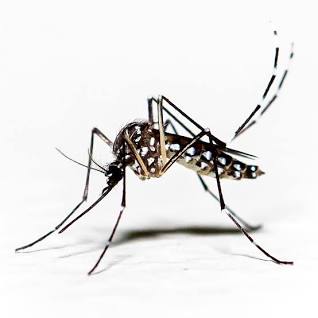
Climate change increasing malaria transmission despite preventive care – WHO
Despite increased access to malaria preventive medication, the World Health Organization has expressed regret over the fact that more people are contracting the disease.
In its 2023 World Malaria Report, the global health organization stated that 249 million new cases of malaria were reported in 2022—two million more than in 2021 and more than the 233 million cases that were reported prior to the pandemic in 2016.
Anopheles mosquito behavior has changed due to rising temperatures, humidity, and rainfall, according to a report that examined the connection between malaria and climate change.
The study claims that extreme weather conditions like heat waves and flooding can have a direct effect on the spread of disease and its burden.
The devastating flooding in Pakistan in 2022, which caused a five-fold rise in malaria cases there, was specifically mentioned in the report.
According to the report, notable increases were also noted in Uganda, Papua New Guinea, Ethiopia, and Nigeria.
According to the WHO, variations in climate can also have an indirect impact on malaria trends because of things like impeded access to vital malaria services and broken supply chains for vaccines, medications, and insecticide-treated nets.
It went on to say that as more people move to areas where malaria is endemic due to climate change-related population displacement, the number of cases of malaria could rise.
WHO emphasized the need to recognize a wide range of other threats in addition to the significant risk posed by climate change.
The development is mainly caused by COVID-19-induced disruptions to public health, humanitarian crises, drug and insecticide resistance, and the effects of global warming, according to WHO Director-General Dr. Tedros Ghebreyesus.
The fight against malaria is seriously jeopardized by the changing climate, especially in areas that are already at risk.
In addition, he stated that there is an urgent need to slow down the rate of global warming and lessen its effects in addition to developing sustainable and resilient responses to malaria.
Climate variability, according to Dr. Matshidiso Moeti, Regional Director of WHO for Africa, is a significant risk, but nations also have to deal with issues like poor access to healthcare, ongoing conflicts and emergencies, the COVID-19 pandemic's lasting effects on service delivery, insufficient funding, and uneven application of key malaria interventions.
"We need a concerted effort to tackle these diverse threats that foster innovation, resource mobilization, and collaborative strategies in order to move forward toward a future free of malaria," she continued.
The first malaria vaccine recommended by the WHO, RTS, S/AS01, was phased out in three African countries, as one of the accomplishments highlighted in the report.
Thorough analysis revealed that compared to areas where the vaccine was not given, there was a notable 13% decrease in early childhood deaths from all causes and a significant decrease in severe malaria.
In order to combat malaria, WHO called for a "substantial pivot" that included more funding, heightened political resolve, data-driven tactics, and innovation aimed at creating goods that are more effective, efficient, and reasonably priced.
"Responses to malaria that are resilient and sustainable in line with efforts to mitigate the effects of climate change are necessary given the additional threat posed by climate change. According to the statement, "building integrated approaches requires whole-of-society engagement."





